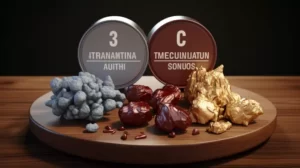If you’re struggling to get rid of excess fat or feel like your energy levels have plummeted, you may be lacking one essential heavy metal in your diet. For starters, your body requires this metal to metabolize fat, which means, if it’s insufficient, you’re putting yourself at higher risk of obesity and related diseases.
And it’s no surprise that many Americans are overweight or obese, with a quarter of the population being deficient in this vital mineral. So when researchers from the University of California-Berkeley tell you that copper is critical in your body’s ability to break down fat and utilize it for energy, it’s worth paying attention to.
The Importance of Copper
Chris Chang, a lead researcher at Berkeley Lab’s Chemical Sciences Division, said, “It [copper] acts as a regulator. The more copper there is, the more the fat is broken down.” A connection between fat metabolism and copper has also been observed in the field of animal husbandry. More specifically, the amount of copper in the feed of livestock affected how fatty their meat was.
Researchers hope that by confirming this copper-fat connection once again, they pave the way to a solution for many of America’s health problems. Some of the country’s most concerning health concerns, such as cancer, diabetes, and heart disease, are closely linked to obesity.
Reasons for Copper Deficiency
The main reason behind copper deficiency in Americans is their standard diet. It’s important to remember that the body cannot produce copper, so we need to obtain it through our diet. “The typical American diet, however, doesn’t include many green leafy vegetables. Asian diets, for example, have more foods rich in copper,” said Chang.
To ensure you’re getting enough of this fat-burning miracle metal in your diet, try incorporating more copper-rich foods. Some examples include:
- Shellfish (particularly oysters)
- Leafy greens (especially kale)
- Mushrooms
- Seeds (mainly sesame seeds)
- Nuts
- Beans
- Liver
- Avocados
- Goat cheese
Moreover, dark chocolate is an excellent source of copper. Adults should consume about 700 micrograms of copper per day, which can easily be achieved by regularly eating a few of the foods listed above.
Avoid Excessive Copper Intake
It’s worth noting that you should not seek extra copper through supplements. Copper supplements increase your risk of getting too much copper, which can throw your body’s mineral balance out of balance, ultimately harming your health rather than helping it.
By incorporating these copper-rich foods into your diet, you can positively impact your body’s ability to break down fat and turn it into energy. This small change can make a significant difference in helping you maintain a healthy weight and, in turn, lowering the risk of obesity-related health complications.



